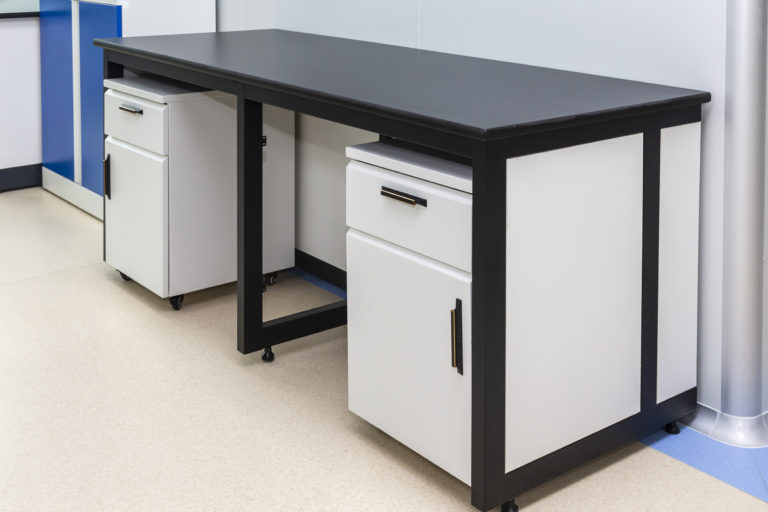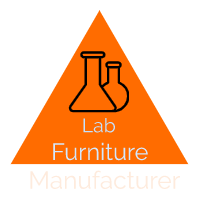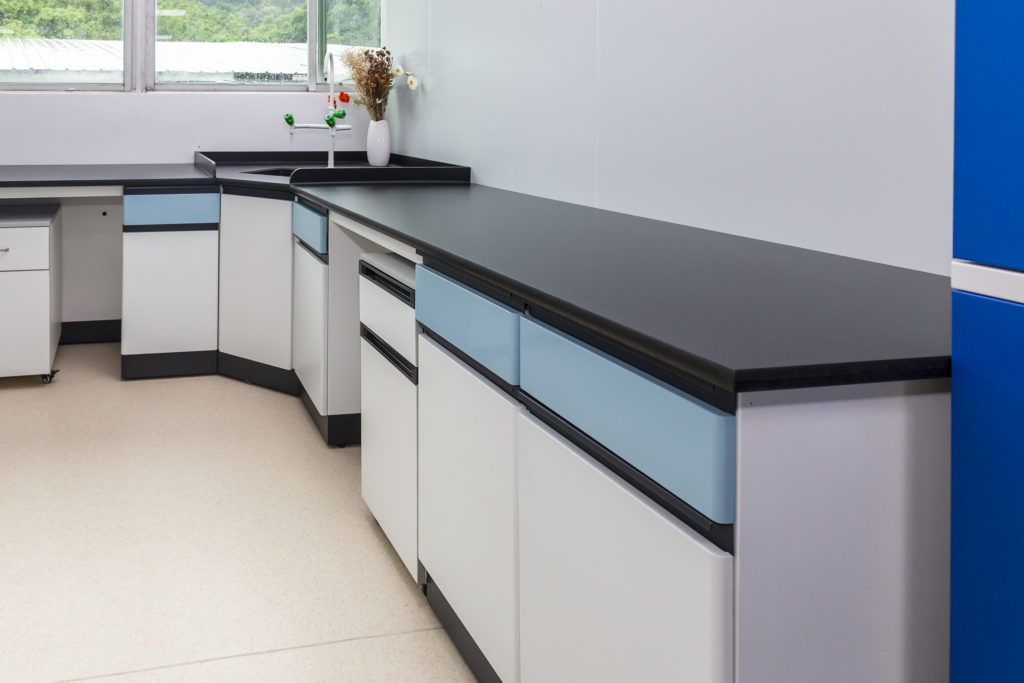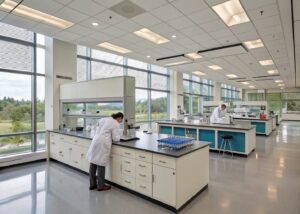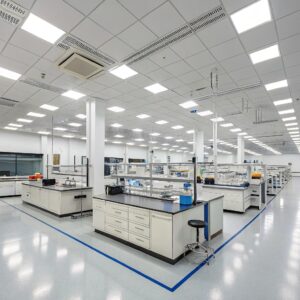When planning the lab building, you need to separate the space into a different room to meet the lab experiment demand. Or when you work in various industries, such as food and beverage, inspection and test, hospital, education, biotech, chemical, pharmaceutical, etc. Different industry labs must carry out various tests or purchase additional lab equipment. So choosing the right workbench top is essential to ensure the operation safety and the lab furniture is durable.
Our factory has the following main option for the workbench top.
Solid Phenolic Benchtop
We have different brand options for this material, SHANGHAI WILSONART, FORMICA, and Holland Trespa.
This material can stand a chemical corrosive, anti-static, work under the temperature -50–+140, and has excellent chemical resistance performance. If your lab involves acid and alkali, you can consider using this type of material. In addition, the cost is lower than the epoxy resin.
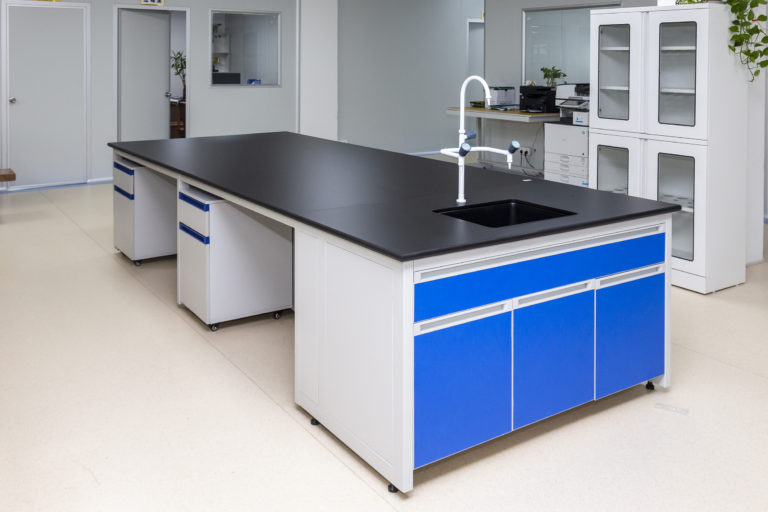
Epoxy Resin
Epoxy resin is the most expensive material to make the lab workbench top. Because this material works very well in chemical resistance, especially the strong acid and the strong alkali, but this material is very hard, the process is more difficult for a lab furniture manufacturer, So adding the purchasing cost and the production difficulty, the price may not favorable to those has a tightening budget.
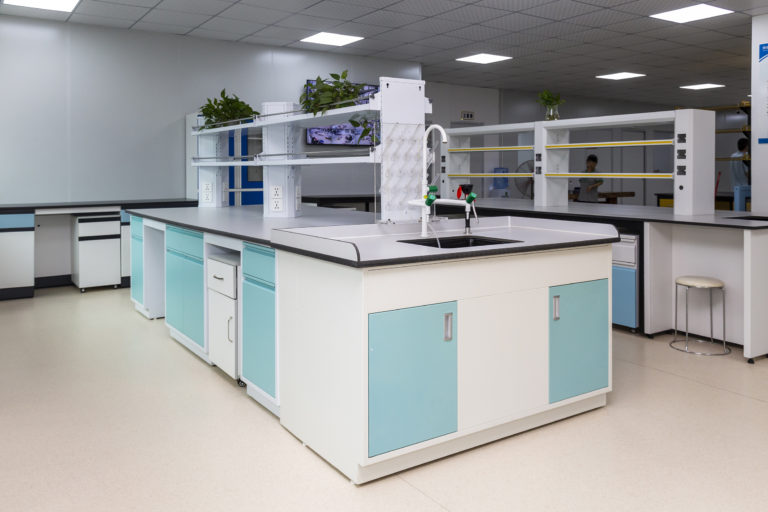
Ceramic
The ceramic benchtop is superior in anti-corrosive, easy to clean, high temperature, and high-pressure resistance. Unfortunately, it also has an identical feature to the epoxy resin; it is tough to process. So when you chose this material, we were hoping you could double and double to confirm the final CAD drawing and the size so that it can reduce the loss by mistake.
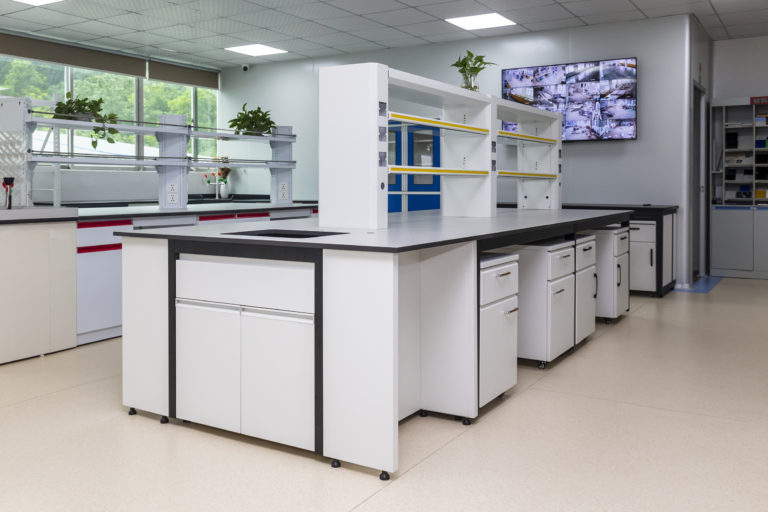
Stainless Steel
Stainless steel benchtop is often used in a clean room. This material can resist the bacteria from developing. Free contaminated of germ. But it is not good at corrosive resistance. So the chemistry lab won’t consider using it.
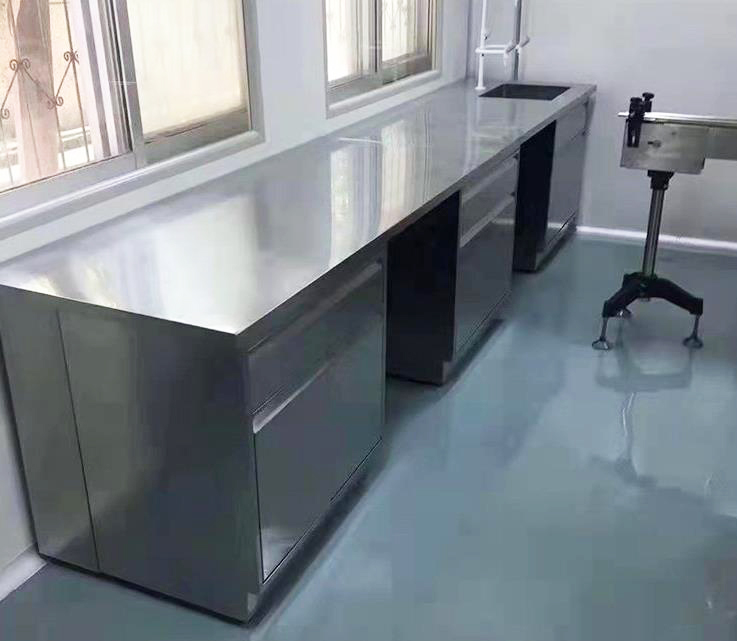
Marble
Marble is strong enough to bear the heavy duty equipment and the sudden punch on the surface. So the marble benchtop is perfect for resisting high temperatures and high pressure. But it is weak to resist the acid and alkali. So it is very suitable for the physics lab.
